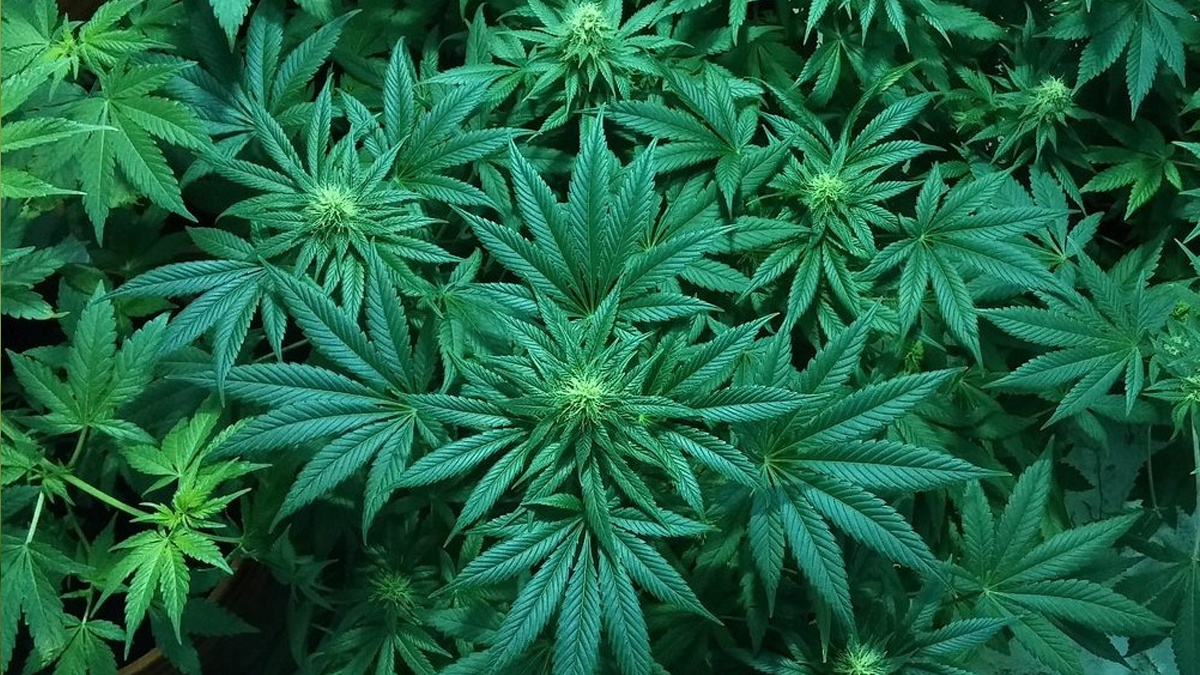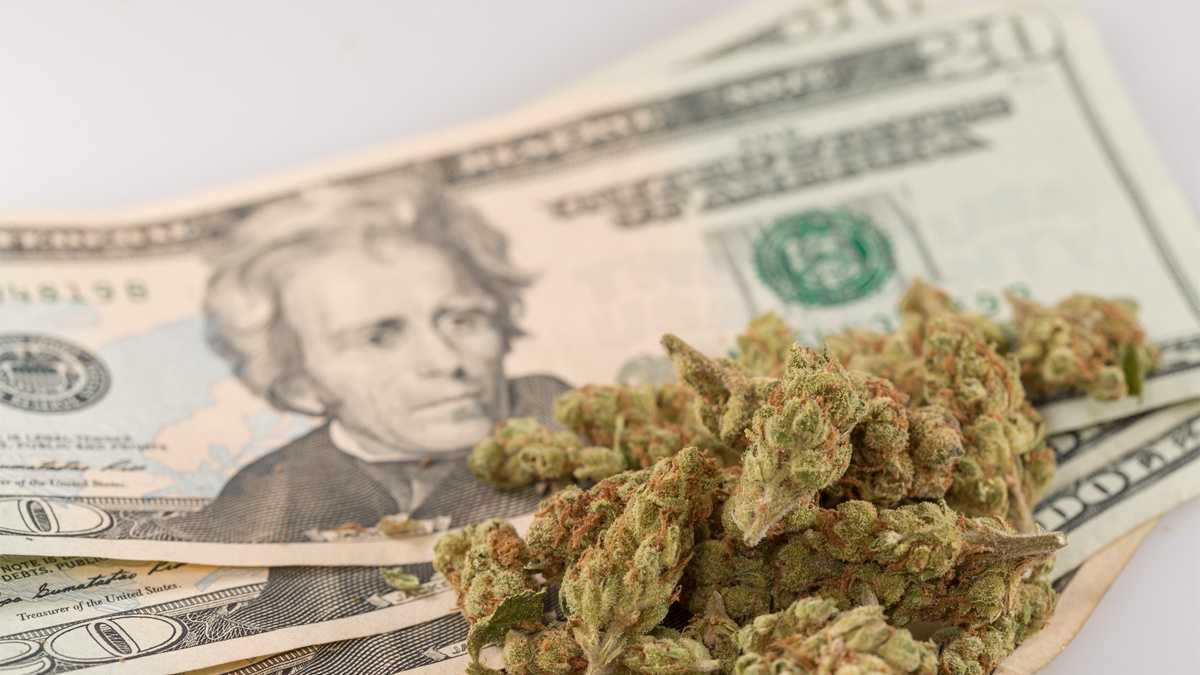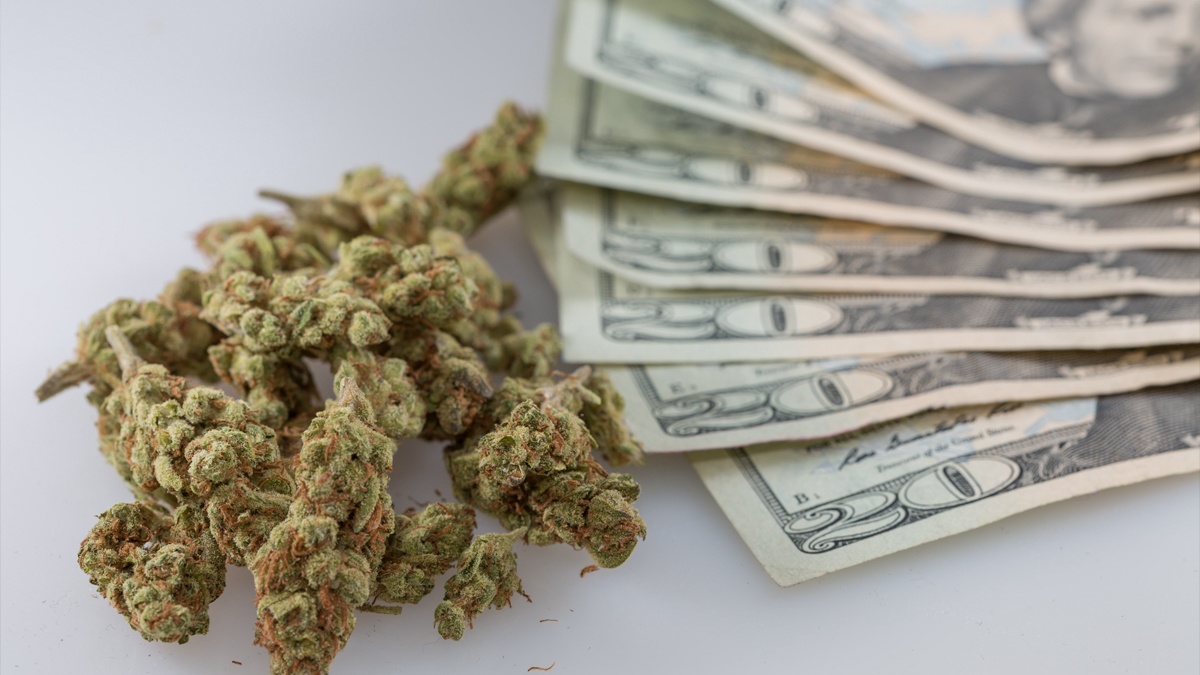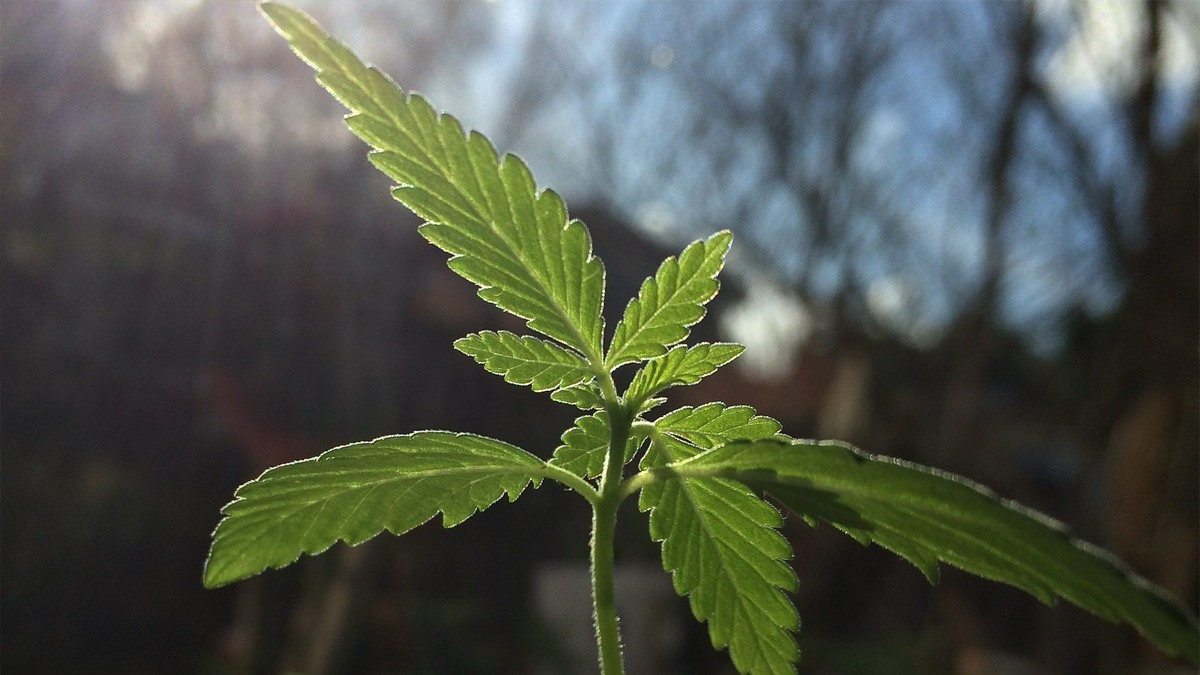
“The idea is to make this accessible. When you talk about the will of the people, they want it to be accessible.”
By John Hult, South Dakota Searchlight
A Senate panel chaired by a member of the state’s Medical Marijuana Oversight Committee shot down a bill Wednesday with far-reaching implications for cannabis patients.
Among nine bills that would adjust South Dakota’s medical cannabis laws this legislative session in Pierre, seven remain alive, including bills to hike the price of a dispensary license, allow police to search dispensaries and force prescribers to notify a patient’s primary care provider about their receipt of a card.
The now-scuttled Senate Bill 82 was the most concerning for cannabis advocates, according to Jeremiah Murphy, a lobbyist for the Cannabis Industry Association of South Dakota.
It would have required citizens to get medical marijuana cards from their primary care provider, or through a referral from that provider, and defined what constitutes a primary care provider. Opponents argued it cleared a simpler path to criminal charges for doctors who prescribe marijuana.
“Senate Bill 82 was absolutely the most critical threat out of what’s out there,” Murphy told South Dakota Searchlight after the bill’s 5–2 defeat in the Senate Health and Human Services Committee. “They got a lot of feedback from patients on that one. They poked the beehive, and bees came out.”
That threat of criminal charges for doctors was a deciding factor for Sen. Erin Tobin (R-Winner). Tobin is a nurse by trade and chairs the Senate Health and Human Services Committee. She also sits on the Medical Marijuana Oversight Committee with the bill’s sponsor, Sen. Jim Mehlhaff (R-Pierre).
That oversight committee discussed but did not endorse a host of ideas during its 2023 meetings. Mehlhaff and Tobin have each carried cannabis bills into the 2024 session, but the pair were split on SB 82.
The bill’s attempt to define the term “primary care provider” in a profession where provider roles are too malleable to fit snugly into legal terminology was especially problematic for Tobin.
Some people see cardiologists for primary care, she said. Others see doctors who may be unwilling to refer patients to a specialist for a marijuana card. Many don’t have a primary care doctor at all and get care through a clinic.
During his testimony, Murphy noted that 30 percent of Americans have no primary care doctor.
Tobin argued Wednesday that medical professionals with questions about the legal veracity of their role as primary care doctors might be unlikely to prescribe medical cannabis to otherwise qualifying patients.
“If there’s a questionable piece to this, doctors are just going to pull out,” Tobin said.
Mehlhaff has been peppered with feedback over his bill, he said. Most of it was some form of a reference to the ballot question that legalized medical marijuana four years ago, such as, “you’re trying to undo the will of the people,” he said.
“That is not the case,” Mehlhaff said. “That is not what I’m doing.”
He presented the bill as a curative to “pop-up clinics” and satellite medical offices that offer patients a pathway to a medical marijuana card outside of a traditional clinic setting.
The initiated measure that legalized medical cannabis was endorsed by 74 percent of voters in 2020. Its verbiage foresaw medical cards flowing to patients through the conduit of a provider with whom the patient has a “bona fide doctor–patient relationship,” via a direct prescription from the doctor or a referral.
Mehlhaff’s bill would have struck that language, added a definition of “primary care provider,” and made clear that doctors who write pot prescriptions without a previous relationship to a patient are in line for a class 2 misdemeanor.
The current language hasn’t prevented abuse of the system, Mehlhaff said.
“It’s not being followed,” Mehlhaff said of the law’s requirement for doctors to have a “bona fide” doctor-patient relationship before writing a pot prescription.
“I think a lot of times, they’re preying on people’s addictions,” Mehlhaff said.
Tamara Grove, a lobbyist for the anti-cannabis group Protecting South Dakota Kids, told the committee that nearly three times as many people than expected now have medical marijuana cards in South Dakota. There are 13,150 approved patient cards in the state.
That people could be getting cards to use recreational marijuana, Grove said, means that the will of voters has not been respected.
“The people of South Dakota did indeed vote for medical marijuana to be law,” Grove said. “What they did not vote for is recreational marijuana.”
Mehlhaff said the bill would simply put the ability to prescribe marijuana in the hands of primary care doctors, which, he argued, is how medical decisions ought to be made.
“That’s all that we’re asking for: that medical marijuana be treated like any other medication that’s dispensed by professionals,” he said.
Opponents: Pitch could quash access for patients
Tobin’s concerns focused on the issue of defining primary care providers, as well as on SB 82’s potential for unintended consequences. Other opposing committee members zeroed in on a lack of data to prove that people are abusing the system, as well as the impact to patients without primary care physicians and veterans who get their primary care through the Veterans Affairs (VA) Health System.
VA doctors are prohibited from prescribing medical marijuana.
“I understand the spirit of what we’re trying to accomplish with this bill, but I have concerns about its realistic application,” said Sen. Sydney Davis (R-Burbank).
Davis also challenged the notion that the bill would create parity between marijuana and other medications. Doctors needn’t be primary care providers, which she referred to as “PCPs,” to write a prescription for opioids, Davis said.
“We don’t do that for anything else in health care,” Davis said. “Whether that’s a pain medicine, or a painkiller, we don’t do that. We don’t require you to have a PCP.”
Sen. Shawn Bordeaux (D-Mission) pointed to the difficulty Native American citizens have finding a primary care doctor on reservations. In many cases, he said, overbooked doctors at the Indian Health Service (IHS) are the only realistic health care option on reservations.
The IHS, like the VA, bars its doctors from prescribing marijuana, a substance legal in the majority of states but illegal under federal law.
“The IHS is an issue,” Bordeaux said. “For many people in my community and communities like mine, it’s hard to find a primary care doctor. Many times it’s the emergency room.”
Sen. Tim Reed (R-Brookings) said he’s not convinced there’s enough proof of abuse to clamp down on access for legitimate cannabis patients. When questioned by Reed, Mehlhaff admitted that there is no data to back claims of widespread abuse.
“Some people are going to slip through this process,” Reed said. “But the idea is to make this accessible. When you talk about the will of the people, they want it to be accessible.”
Other pot bills still alive
Just before the committee voted down SB 82, Tobin reminded the committee that several other cannabis bills are still alive.
She specifically noted SB 10, which would require any provider signing off on a medical marijuana card to tell a patient’s primary care provider about it. Tobin is the prime sponsor of that bill, and said Monday on the Senate floor that such an information exchange is part of the standards of care for medical practitioners.
“Primary care provider” may not have a statutory definition, but Tobin told South Dakota Searchlight after Wednesday’s committee hearing that current medical cannabis law already expects patients to have a relationship with a provider before getting a card, or to get a referral to another provider through a doctor they know and work with.
“There should have been some communication from someone leading up to that visit,” Tobin said. “I know that’s not always happening, but that’s the way it should happen.”
The federal Health Insurance Portability and Accountability Act (HIPAA) prevents the disclosure of personal information by medical professionals, but Tobin said that act is tied to medical care covered by insurance.
“Marijuana does not go through those routes,” Tobin said. “I would say if I had a clinic, I would make sure that there were policies and procedures in place to ensure confidentiality. But is it a HIPAA requirement? I don’t know the exact answer to that. I would say probably not because it’s going through a different path.”
SB 10 passed the full Senate on a 30–3 vote.
Murphy told South Dakota Searchlight that his group’s opposition to that bill hasn’t been tied to issues of data privacy. It’s because the group finds it redundant in the face of another bill that would put medical cardholders into a prescription drug monitoring database accessible by all doctors in the state.
“Our objection to that was that it was superfluous,” Murphy said.
None of the other cannabis-related bills currently on the legislative docket aim to place restrictions on marijuana card access to the degree of SB 82. One, SB 11, forbids a practitioner from referring a patient to a clinic in which they or their family have a financial stake, but does not attempt to adjust the definition of a primary care provider or otherwise amend current law on doctor-patient relationships.
That bill also sailed through a Senate committee and passed on the Senate floor.
Other 2024 marijuana bills
House Bill 1024: Requires applications for medical pot cards to note that federal law bars the ownership of firearms by people who “use or are addicted to marijuana.” HB 1024 succeeded on the House floor by a vote of 68-1. It passed the Senate Health and Human Services on Wednesday and now heads to the Senate floor.
House Bill 1036: Requires marijuana dispensaries to post a notice on the potential for marijuana use to affect their firearms rights. HB 1036 passed the full House 42-27, but the Senate Health and Human Services Committee rejected it.
Senate Bill 12: Allows employers in safety sensitive jobs to bar marijuana use by employees. SB 12 passed the full Senate 32-1. The bill’s next hearing will take place in the House Judiciary Committee.
Senate Bill 42: This bill includes several changes to existing medical cannabis law, including adjustments to probation policies for dispensaries that run afoul of regulations. The biggest change, however, would require the names of medical cannabis cardholders to be added to the state’s prescription drug monitoring program. Currently, anyone prescribed a narcotic is listed in that database, used by providers to check for doctor-shopping by addicts. SB 42 passed the Senate 29-4. It’s now set for a hearing by House Health and Human Services.
Senate Bill 43: Increases the state fee for a dispensary license application from $5,000 to $14,000, allows fines of up to $10,000 for misbehaving dispensaries and allows the Department of Health to terminate a dispensary’s license for repeated and serious regulatory violations. SB 43 passed the Senate 22-11 and now heads to the House Health and Human Services Committee.
Senate Bill 71: Repeals a provision in South Dakota’s medical marijuana statute barring law enforcement from inspecting dispensaries, manufacturing facilities, or testing facilities, or from seizing their cannabis. The Senate passed SB 71 on a 26-7 vote on Tuesday. The bill will next appear in the House Health and Human Services Committee.
This story was first published by the South Dakota Searchlight.
Marijuana Moment via (https://www.marijuanamoment.net/south-dakota-lawmakers-kill-bill-to-restrict-medical-marijuana-doctors/)
Keep out of reach of children. For use only by adults 21 years of age and older.













